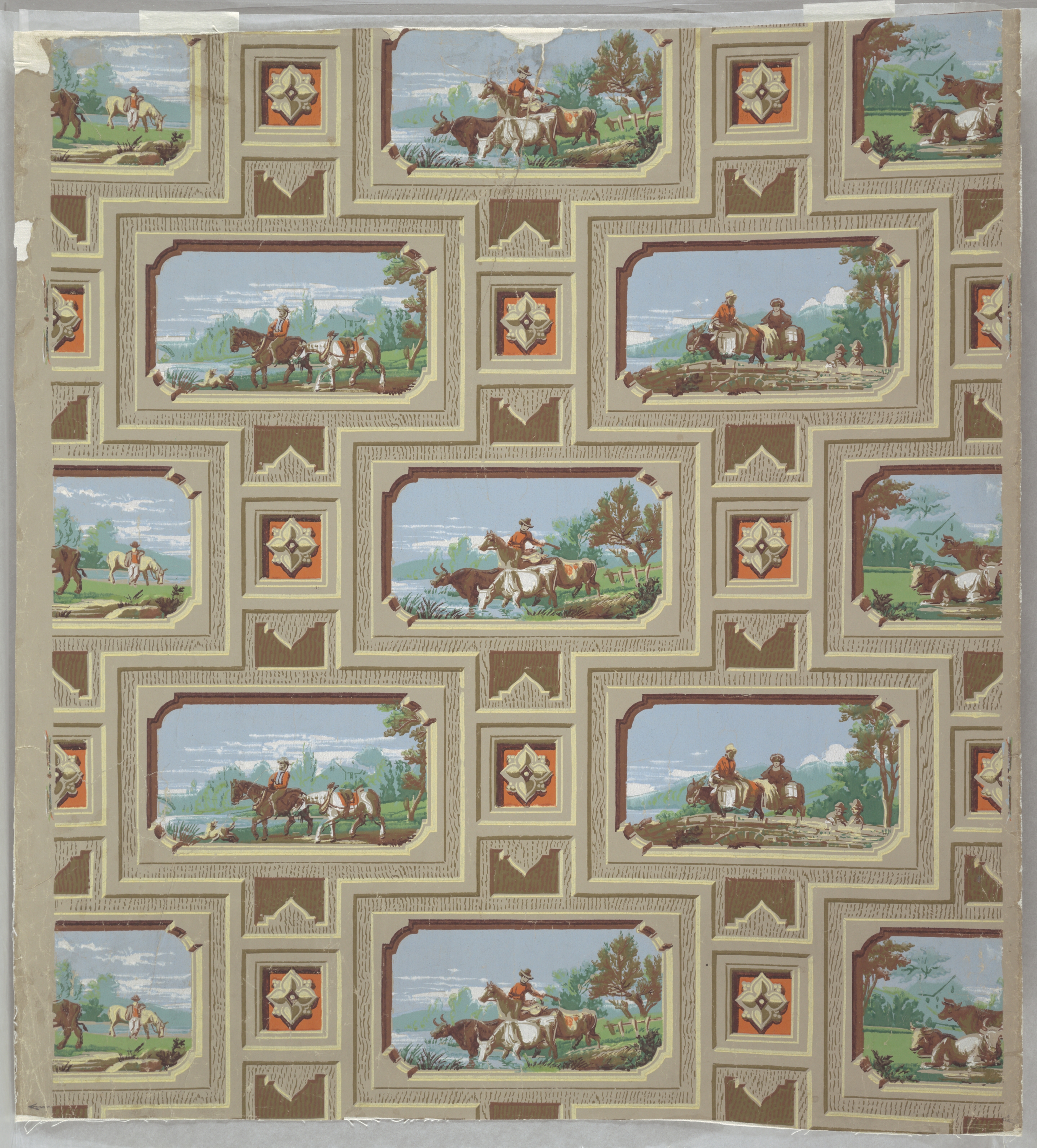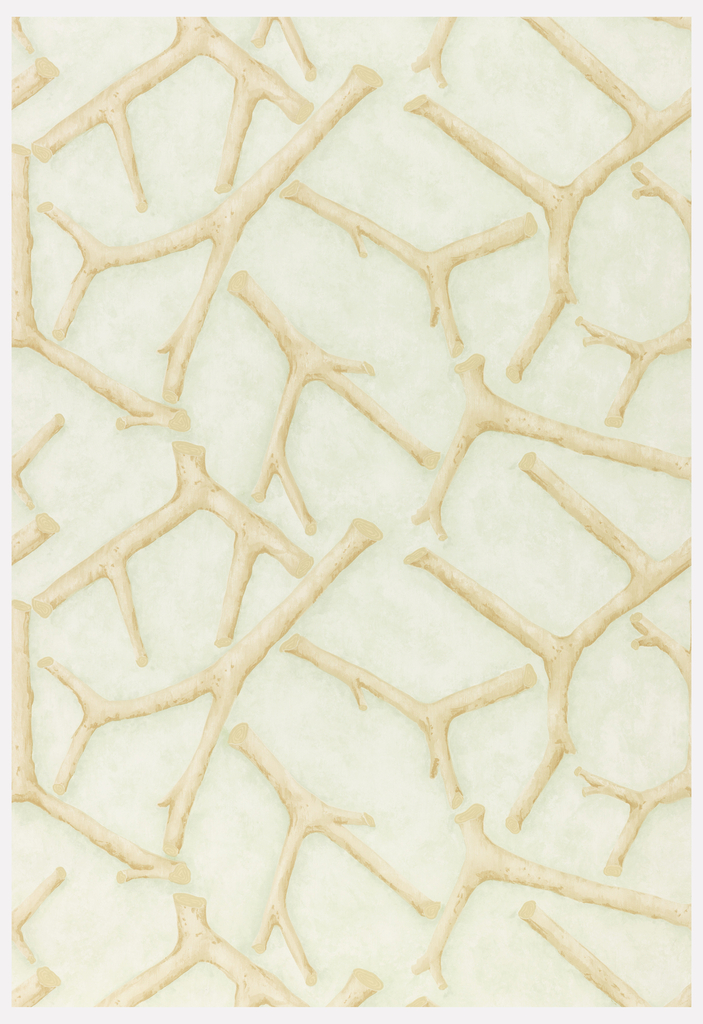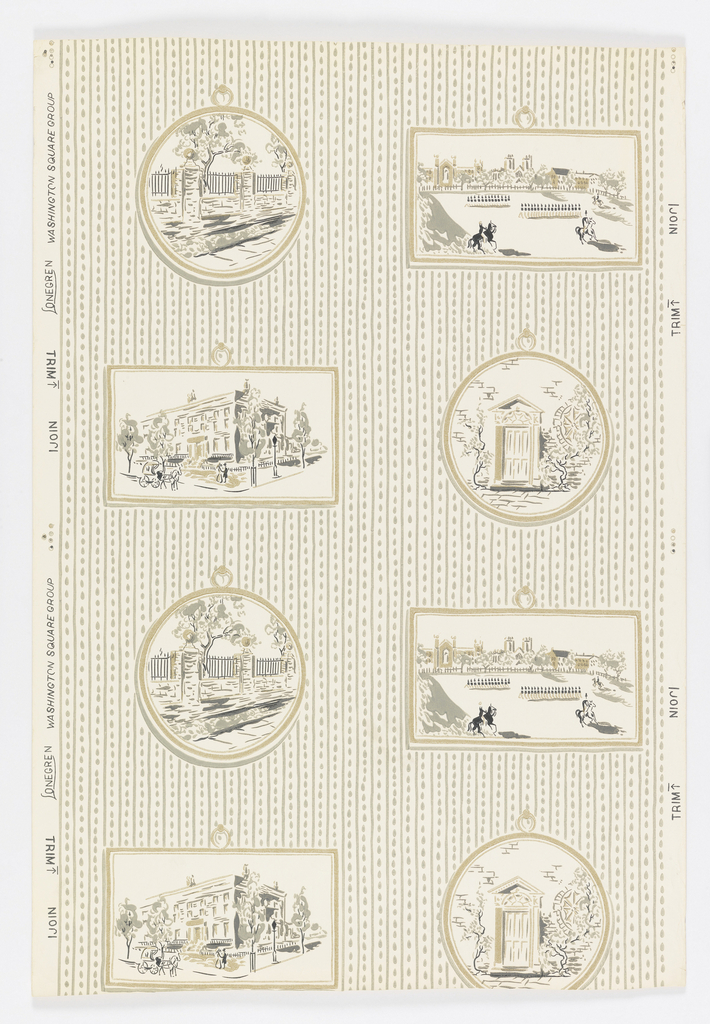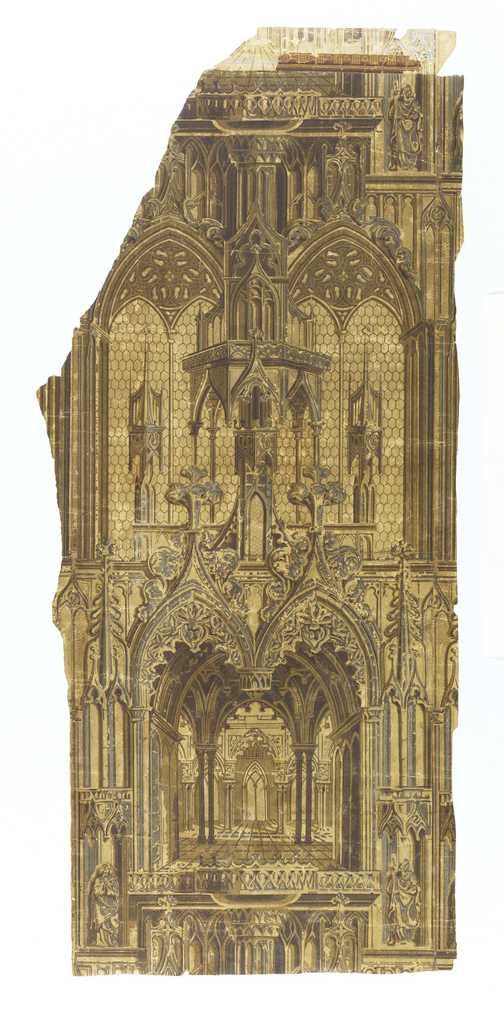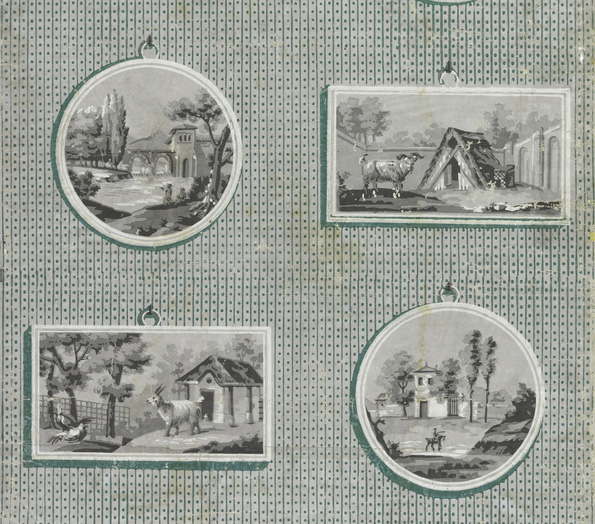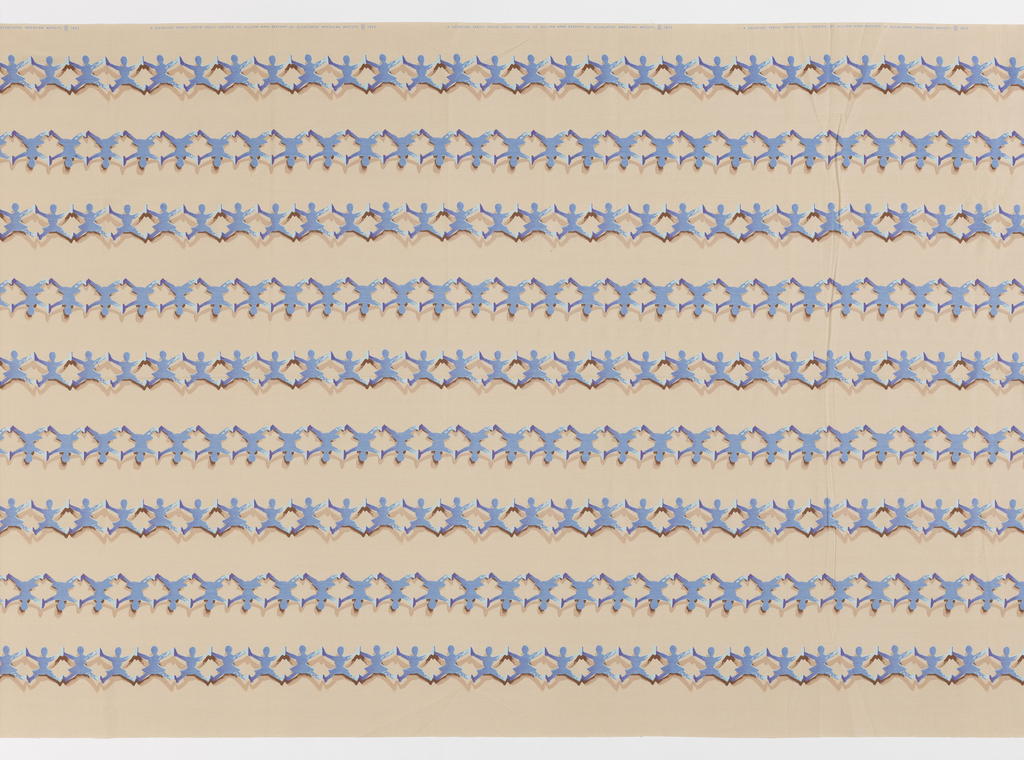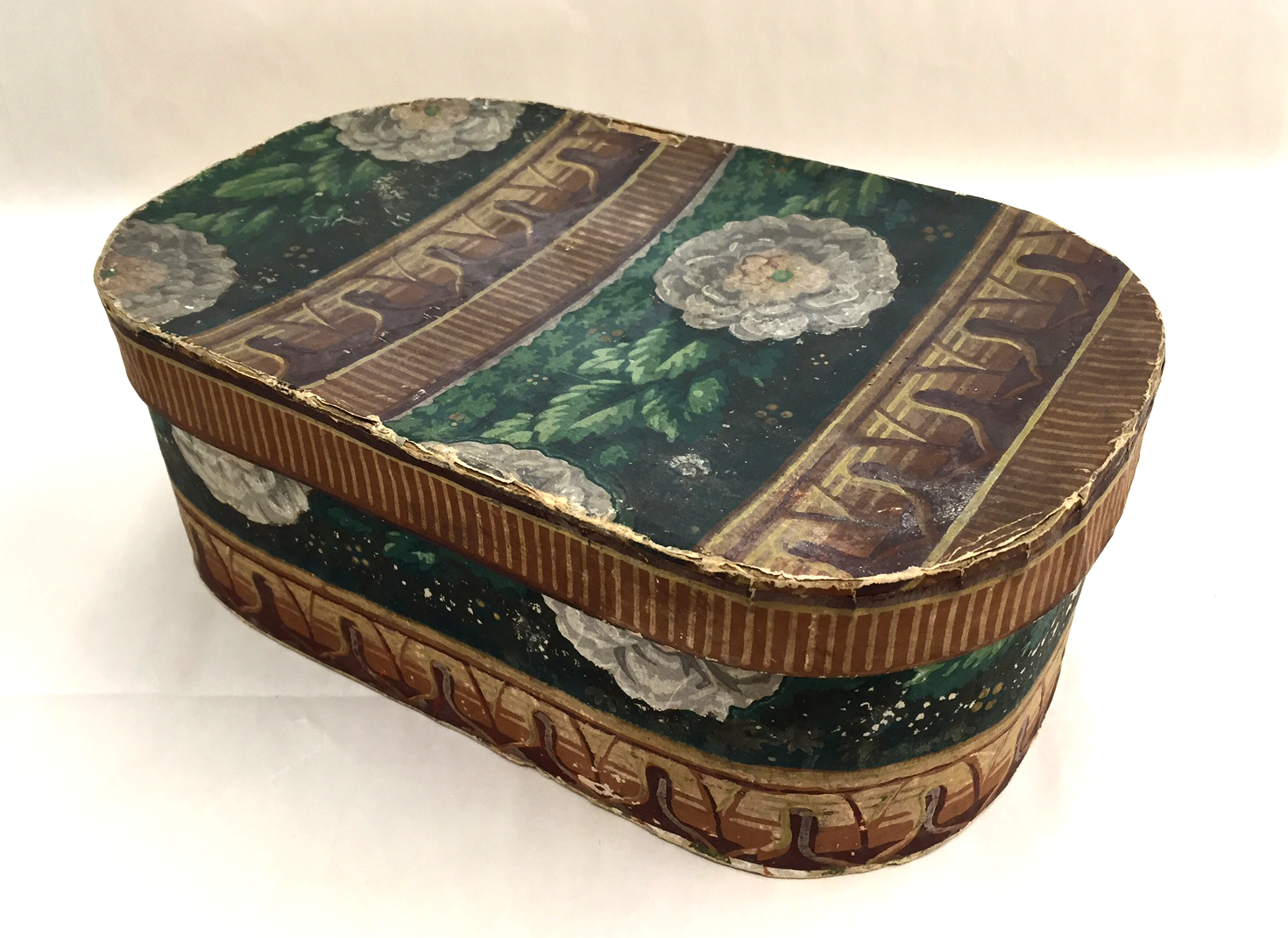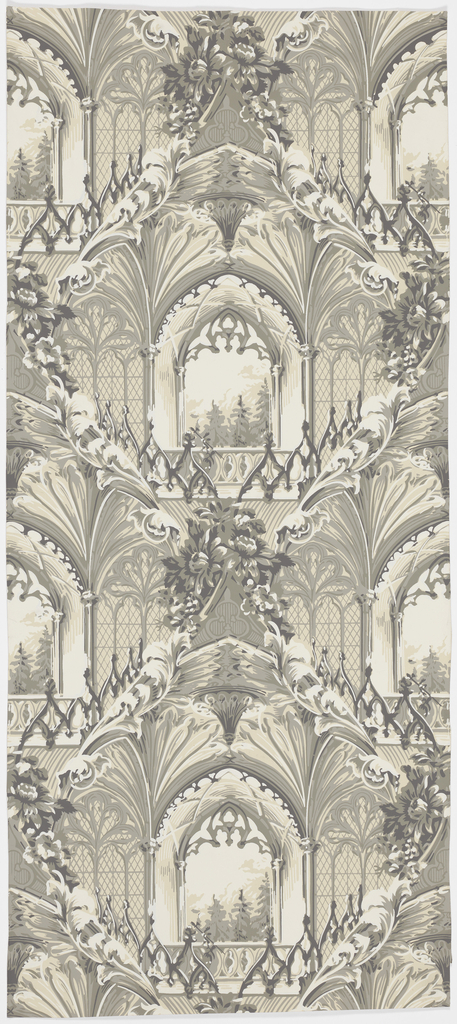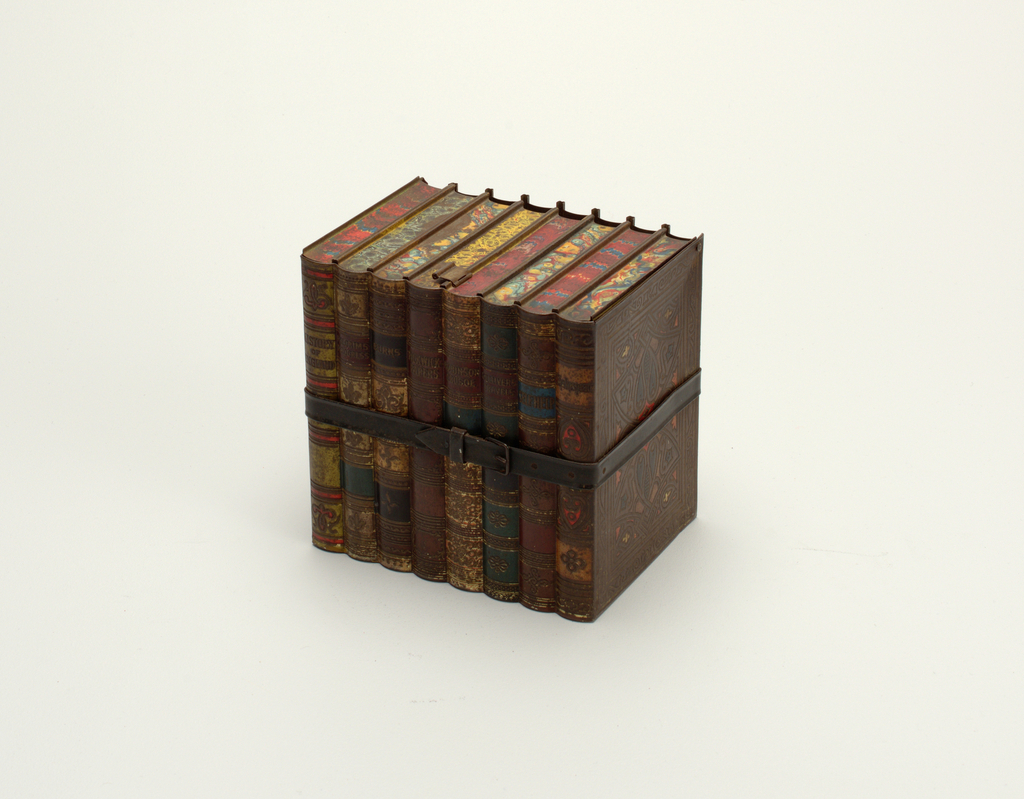The framework of this wallpaper illustrates a format of “postcard” views popularized during the second half of the 19th century. This design format was available in a wide variety of tile and ashlar block styles, from rustic to more sophisticated. The paper contains four different views, each showing a different equestrian scene, all set in...
In celebration of World Pride, June Object of the Day posts highlight LGBTQ+ designers and design in the collection. Kennebec is a fun, playful wallpaper pattern that would hang unobtrusively on the wall, adding a bit of color and texture to the room. The design is rustic in nature, given that it has the appearance...
In celebration of Women’s History Month, March Object of the Day posts highlight women designers in the collection. Picture Gallery copies the format of a print room wallpaper. The trend for print rooms was said to have started in Paris during the 1720s, becoming fashionable in England by the 1750s. Print room walls were adorned...
A striking Gothic Revival wallpaper with a fairly large repeat, made possible by the woodblock printing. Inspired by Gothic cathedral architecture this design contains two different views: one showing a very deep perspective looking through a chamber with vaulted ceilings, into another with columns, and arched windows and doors, while the other view is a...
I came across an image of this print room paper and became fascinated as I took a closer look at each of the framed landscape views. Each view contains a figure and a structure. And half the figures happen to be goats, living in these beautifully styled shelters. Just to confirm these were actually houses...
In Paper Dolls, one of many trompe-l’oeil designs by William Ward Beecher, blue paper cut-outs join at the hands and feet in the form of a child’s paper chain. The figures cast shadows on the beige ground behind them, so that they appear to hover above the surface. The February 17, 1953 issue of Women’s...
Bandboxes, a decorative yet practical item of an earlier time, were originally used as receptacles for holding men’s neckbands in the early 17th century. Although they continued to hold that purpose heading into the 19th century, women would soon adapt them to carry their personal items and accessories. Between the years 1820 and 1845, the...
This beautiful monochromatic wallpaper is an excellent example of mid-nineteenth century stylistic eclecticism. The window, surrounded by fan vaults and Gothic tracery, is a typical Gothic Revival image. However, the bunches of flowers and swirling acanthus leaves that frame the Gothic interior are Rococo Revival motifs, pointing to the enormous influence of French culture on...
This trompe-l’oeil biscuit tin takes the form of a stack of books with handsome marbled pages and tooled leather bindings. The titles include some of the most ubiquitous texts in British history, from the moralistic Pilgrim’s Progress to the adventure stories of Daniel Defoe and Jonathan Swift. The books are a play on the name...
